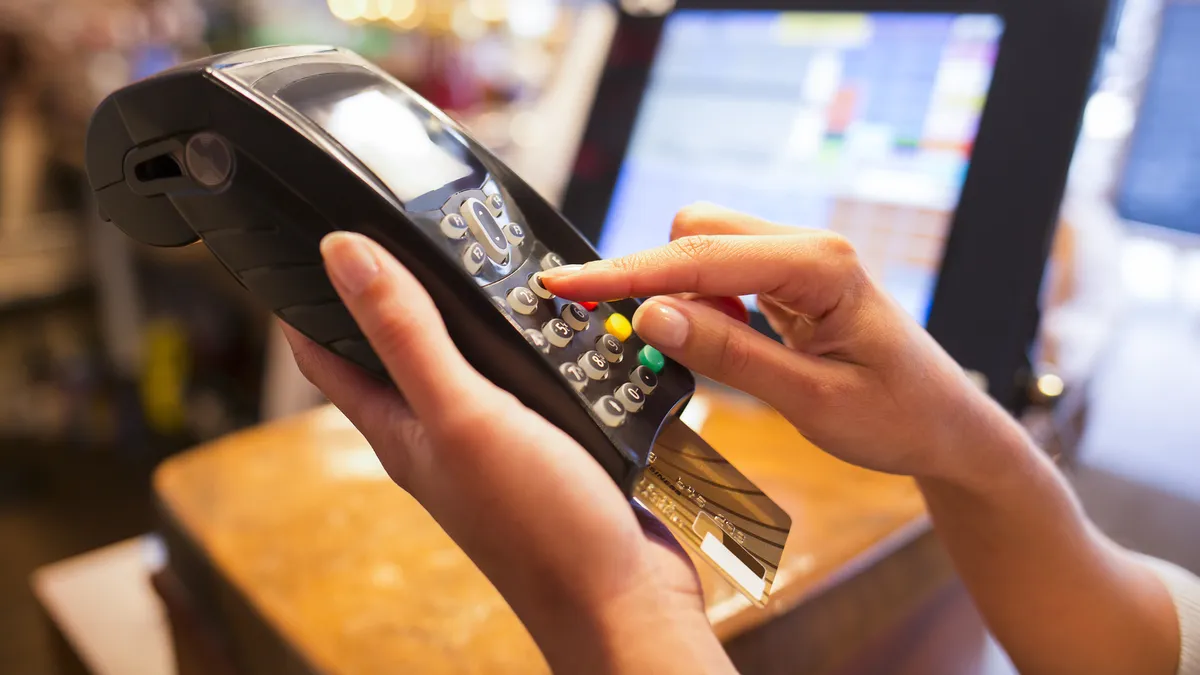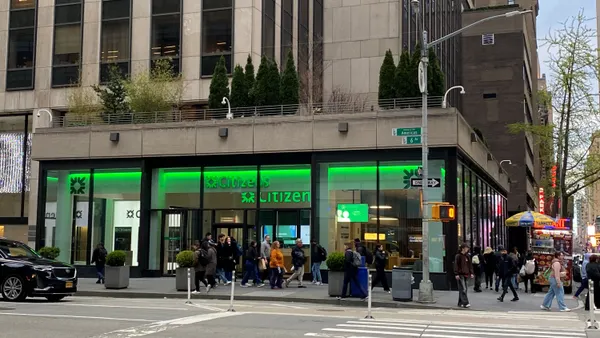Dive Brief:
- Sen. Dick Durbin, D-IL, asked the Federal Reserve in a letter Friday to examine whether payment networks Visa and Mastercard and debit card issuers are engaging in anticompetitive practices when issuers don't enable PINless functionality, according to The Wall Street Journal.
- Many merchants don't use technology allowing online shoppers to input their personal identification number (PIN). Without that, transactions generally are automatically routed through Visa or Mastercard, costing retailers at least $2 billion a year in debit fees, according to CMSPI, a global payments consultancy.
- As the coronavirus pandemic has heightened, online and other card-not-present debit-card purchases have climbed from 14% of U.S. debit- and credit-card payments in February to 24% between March and May, CMSPI said.
Dive Insight:
"U.S. retailers and restaurants cannot afford to pay unnecessarily high fees for debit card transactions at a time when they have been hit hard by the pandemic and its economic effects," Durbin said in the letter, which Rep. Peter Welch, D-VT, also signed.
Durbin has long paid attention to swipe fees' effect on retailers. An amendment named after him in the 2010 Dodd-Frank Act limits how much merchants pay big banks when shoppers use debit cards. The amendment also mandates merchants be given a choice of at least two unaffiliated debit-card networks through which they can route transactions.
Durbin is concerned some issuers may not be adhering to that requirement. In his letter, he called Visa and Mastercard a "card network duopoly." Visa declined to comment to The Wall Street Journal. A Mastercard spokesman declined to comment, saying he hadn’t seen the letter.
"There’s nothing to suggest anyone isn't fully adhering to the debit marketplace rules," Jeff Tassey, chairman of the board of the Electronic Payments Coalition, told the Journal. "Independent PIN debit networks failed to innovate. ... Now, at a time of rapid change and disruption, [they] are asking the government to force the transfer of intellectual property ... developed through substantial investments by the payment networks and financial institutions."
Tassey said online purchases have kept some small businesses running throughout the pandemic. However, other shifts in shopper behavior — purchases made via mobile wallet, and contactless payments made by tapping a card against a store’s terminal — have cemented Visa and Mastercard's dominant market positions, retailers said. Such purchases limit merchants' ability to route transactions on networks other than Visa or Mastercard when those logos are displayed on the card, prompting higher swipe fees, retailers said.
In mobile-wallet transactions, a customer’s 16-digit card number is generally scrambled into a token, which a major payment network then translates back into the account number in a security measure. Retailers can send those payments along a PIN debit network, but that network would then have to rely on Visa, Mastercard, or whichever network appears on the front of the card, to unencrypt the token.
A Fed spokesman told the Journal on Friday that the central bank plans to respond to Durbin's letter.












